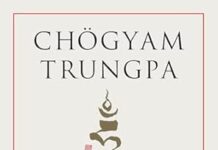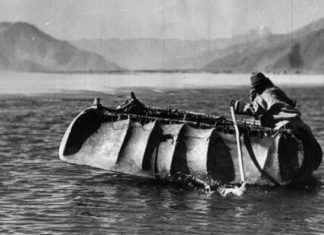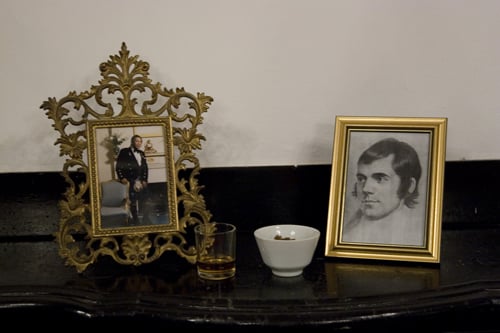
During the 1979 Kalapa Assembly in Big Sky, Montana, Trungpa Rinpoche talked about the importance of connecting with one’s cultural heritage, that regardless of our origins there is something to be gained by celebrating and honoring our ancestral roots. Taking him seriously, a group of Rinpoche’s Scottish and Scottish-American students formed the New Caledonia Society later that year and hosted their first Robert Burns supper in January 1980 at Marpa House.
It was a great success. Trungpa Rinpoche, who was an official member of the Elliot Clan by marriage, and who lived in Scotland for several years in the late 1960s, presided over the feast in his Elliot tartan. Poems were read, songs sung, single malt consumed, and all-in-all it was a night to remember.
Thirty-eight years later, the New Caledonia Society is alive and well, celebrating Burns supper without fail each year at the end of January, including last night (January 21, 2018). The photos on this page are from 2006, when the event was held at the Cambridge Military Library in downtown Halifax. In the years since, Burns Supper has been at the Halifax Shambhala Centre. The “clan,” including sangha and non-sangha friends of Scottish, French, English, Polish, Jewish, Greek, and Tibetan descent, gather to celebrate Burns, poetry, music, and anything else that one might raise one’s glass to. Khenpo Tsering Gyurme (seen in these photos), from the highlands of Kham, was the guest of honor in 2006.
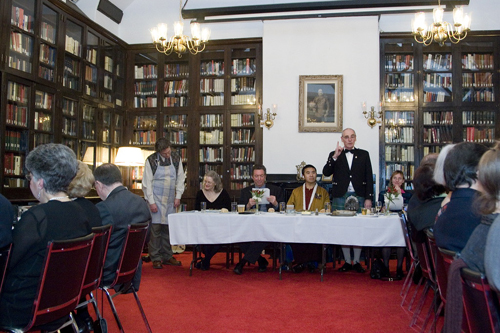
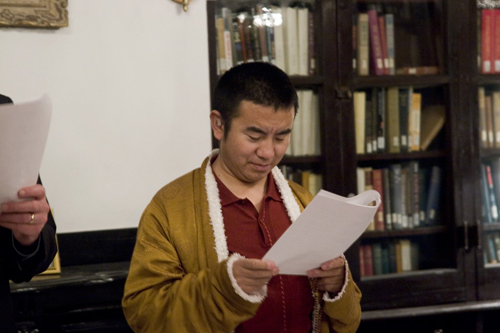
Burns supper is a venerable tradition celebrated wherever Scottish descendants have settled, including Nova Scotia. The protocols of a proper Burns supper are as consistent and formal as a sadhana. When everyone has taken their seat, the cook — led by a bagpiper with pipes skirling — presents the haggis (a kind of sausage made with sheep’s liver and heart) to the head table. The host, or chieftain, serves a wee dram of scotch to the piper and the cook, and then recites Burns’s Address To A Haggis, preferably in a thick Ayrshire brogue. He then stabs the haggis with his sgian dubh, the short dagger traditionally worn with Highland dress and tucked into one’s sock. Then everyone says the traditional Scottish grace, known as the Selkirk Grace.
The Selkirk Grace
Some hae meat and canna eat,
And some wad eat that want it;
But we hae meat and we can eat,
And sae the Lord be thankit.
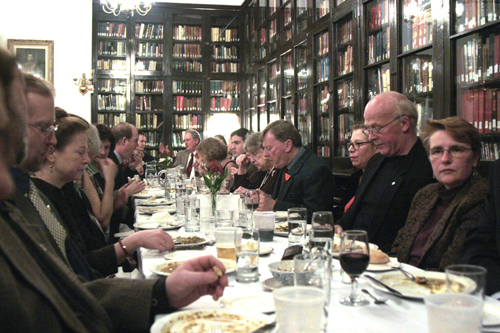
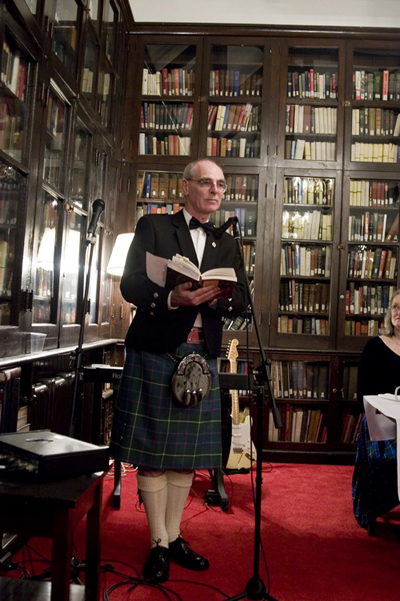
Then there’s the toasting. In New Caledonia Society’s version of these feasts, the three traditional toasts — to Robert Burns, to the lassies, and to the laddies — are preceded by toasts to Trungpa Rinpoche and Sakyong Mipham Rinpoche.
After the toasts, it’s time to recite poetry and sing songs. Trungpa Rinpoche loved the songs of Robert Burns, especially as sung by Jean Redpath, a Scottish folk singer who recorded several albums of Burns songs in the 1970s. Many of the songs sung on Burns night come from these albums, including The Winter it is Past, a sad sweet song of lost love, which is always a highlight of the evening.
The recording below is from the Dragon Thunder DVD, available from Kalapa Media.
https://media.s3bubble.com/embed/aprogressive/id/RZET75376
Most of the songs on Dragon’s Thunder were composed or adapted by Chögyam Trungpa. The Winter it is Past is included because it was one of Rinpoche’s favorites. For many people, the sound of Jane’s voice singing this song invokes the atmosphere of the Kalapa Court and the qualities of that era.
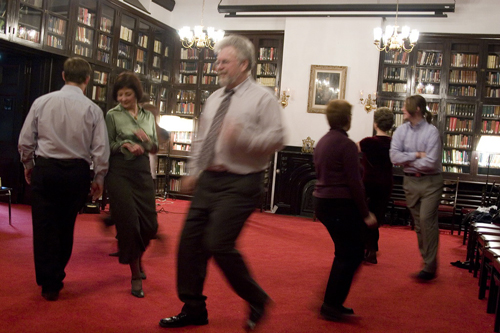
When the singing has died down, the tables and chairs are moved aside to make room for dancing. Here the tradition is closer to home. Scottish music and dance are an integral part of life on Cape Breton Island and, to a lesser extent, throughout Nova Scotia. The evening continues with old-fashioned country dancing to the sounds of the Cape Breton fiddle.
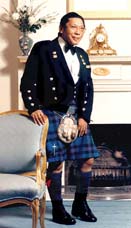
Comments
It was with delight I read and listened to the Burns Dinner Chronicles article. For 13 years we have hosted The Shambhala Celtic Society Robert Burns Dinner here in Kelowna, BC. Our evening follows the same protocol as the one you write about. People look forward to it as an annual event with lots of singing, dancing and poetry. It is a wonderful way to raise lungta in the midst of dreary January. We have a toast to the Vidyadhara, and pass his kilted picture around, even though usually there are only 4 out of 16 people who knew who he was. Terry and I sing the Winter it is Past, and everyone joins in at various parts. It is full of life, humour, elegance and a bit of wild celtic energy. Thank you for sharing the Halifax event with us all.
Denise Kilshaw, 27 February 2006






